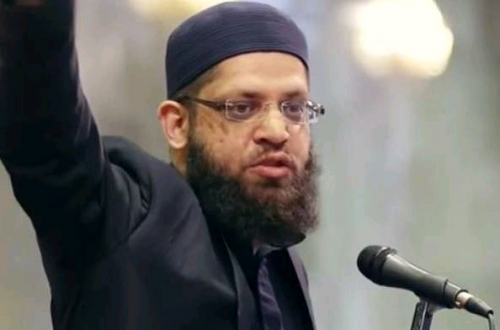First up, a person in a free society has a perfect right to define themselves in any way they want. They also have a right to modify their bodies. I’m in favour of the state acknowledging a person’s self-definition legally: the State should be neutral and should not act as a stumbling block, in the way of its citizens. Practically speaking, in any event, it is unacceptable that a person who regards – and presents – themselves as a woman should be put on an all male ward in a hospital.
Secondly, as Sarah AB points out, there is extensive bigotry, hatred and violence – not to mention active discrimination – against people who have re-determined their sex, which should be fought and opposed.
Thirdly, it would be absolutely unforgivable to approach a transsexual, uninvited, and to barack them on the question of their transsexual identity.
Suzanne Moore, as Sarah says, wrote a piece in which she said that women were under pressure to attain the body shape of Brazilian transsexuals. Here is the exact comment:
“[Women] are angry with ourselves for not being happier, not being loved properly and not having the ideal body shape – that of a Brazilian transsexual.”
That was an apt observation. It would not be an offensive thing to say that students at a particular school were expected to “study with the application of a Yeshiva student” or that an athlete was expected to “run with the stamina of a Kenyan cross country runner”. None of these phrases are intrinsically offensive, none draw on a history of persecution, none promote hatred.
Following the article, Suzanne Moore was subjected to an intense and frankly horrifying online campaign of abuse, which ultimately resulted in her being hounded from Twitter . The abuse included comments in which she was compared to a ‘man in a wig’, incidentally. She wrote a further column, which of course, did no good.
Suzanne Moore did not say that transsexuals should be attacked. She did not call for discrimination against transsexuals: indeed, she would oppose it, strongly. She did not say that transsexuals were not real women (or men). Instead, in her second piece, she explored a few thoughts about the way that sexual identity and gender theory had developed during her lifetime.
As for Julie Burchill’s implication that transsexuals are the equivalent of white men ‘blacking up’: there is no contemporary movement of white men seeking to redefine themselves as black, and having cosmetic surgery to do so. However, there is a long history of argument between (often lesbian) feminists and gay men who are ‘drag queens’, about whether dragging up is an expression of misogyny, similar to ‘blackface’. Transsexuals are not drag queens, but some would make the same arguments in relation to both categories. These arguments have been ill tempered and vituperative. They reflect, however, not a desire to discriminate or to incite hatred, but the active contesting of gender identity boundaries in an era in which such arguments have been hotly and fiercely fought, by people with sincere differences of opinion.
If we want to live in a society in which, for example, transsexuals have the freedom to advance their own contentions as to what makes a person a man or a woman, writers must not be bullied and intimidated for expressing considered and thoughtful views on the subject. There is, or at least ought to be, a clear distinction made between campaigning for discrimination, inciting hatred, and simply expressing a view on the question of gender or sexual identity.
For example, I am strongly in favour of gay marriage. It think that organisations and individuals which are campaigning against marriage equality should be taken on. But if a person says: “I’m sorry, do what you like with the law: but I’ll never regard two men in a partnership as ‘married’, because I define marriage as something between a man and a woman’: then let them be, for heavens’ sake!
Similarly, if somebody calls for the banning of ritual slaughter for Jews and Muslims, I’ll oppose that: but if somebody says “this is cruel, I don’t like it, the supposed religious basis is bunkum and should be ignored, and I won’t eat food that has been killed in this way’: then again, let them be.
So, that’s my view.


